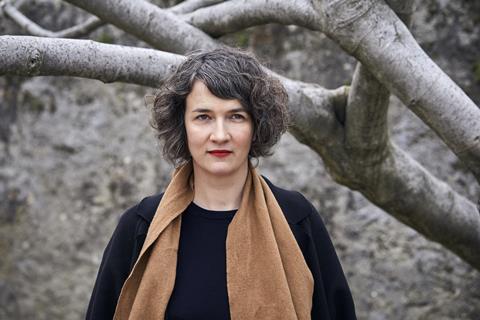
“Our festival has changed massively in the last two years,” says Emilie Bujès, artistic director of Swiss documentary festival Visions du Réel, as she contemplates how pandemic has transformed the event that opens tomorrow (April 21) in Nyon.
The festival is continuing to stream some of its titles, with around 50 films available online for Swiss audiences. On the industry side, pitches can be watched online and meetings are being held both physically and virtually.
“We aim to be as wide and open and varied as possible,” Bujès says of the of the huge range of documentaries being showcased by the festival.
Juliette de Marcillac’s Nightwatchers, about migrants attempting to enter France from the mountains of the Montgenevre ski resort, is opening the festival. “I need to have a film which is both very well made, cinematically very solid but also politically relevant,” Bujès says of her choice of the first film to screen. She points out Swiss politicians in charge of immigration policies will be in the opening night audience.
Around 3,000 shorts and features were submitted and the final programme consists of 163 films, of which 46 features are world premieres.
Coming a month after CPH-DOX is not generally a problem, says Bujès, as Visions du Reel has been established in its slot for 54 years; it’s the Berlinale that can present the bigger challenge. But whatever the competition over titles, Bujès is pleased major festivals like Berlin [with Nicolas Philibert’’s On The Adamant] and Venice [with Laura Poitras’ All The Beauty And The Bloodshed] are now awarding Golden Bears and Golden Lions to docs.
“I am generally happy about it,” she says. “It makes a lot of sense that those films are included in competitions. It’s proof documentary is a genre just like [any other kind of] cinema and should be considered as such, even if there is less money involved.”
Both All The Beauty And The Bloodshed and On The Adamant are screening in Visions du Reel and will open in Switzerland shortly after the festival closes.
There will again be a strong Ukrainian presence in Nyon. The main competition has the Swiss premiere of Polish directors’ Piotr Pawlus and Tomasz Wolski’s In Ukraine which looks at everyday life in the shadow of the Russian invasion. Another Swiss premiere in the Highlights section is When Spring Came To Bucha by Mila Teshaieva and Marcus Lenz. This chronicles the trail of death and destruction left in Bucha when the Russians withdrew from the city.
Visions, however, won’t have a VR section. Virtual reality docs used to be shown at the festival before the pandemic - but no longer. “I feel we do not have the resources to do it properly,” Bujès explains.
Martel and Rohrwacher
Bujès has made the bold decision to invite two directors known primarily for their fiction work as this year’s special guests.
Argentinian filmmaker and screenwriter Lucrecia Martel, whose credits include La Cienaga, The Holy Girl and Zama ,will be giving a masterclass as will Italian auteur, Alice Rohrwacher, known for The Wonders and Happy As Lazzaro, and heading to Cannes competition next month with La Chimera
Martel is finishing a feature documentary, Chocobar, about the murder of indigenous activist Javier Chocobar, which will be released later this year. Rohrwacher, meanwhile, recently co-directed Futura, a documentary about Italian youth. Celine Sciamma will be attending to present her with an award.
“They are very much in-between [documentary and fiction],” says Bujès of Martel and Rohrwacher. “They are both very open in their understandings and definitions.”
The third special guest is Swiss director Jean-Stéphane Bron, considered “a more straightforward non-fiction filmmaker”, as Bujès puts it. But he has been known to experiment with fiction.
”The guests represent an idea of cinema that we as a festival want to defend,” Bujès.
Industry
Sophie Bourdon, the former mk2 exec and deputy director of Locarno Pro, has joined Visions du Reel as head of industry for this edition. “Sophie has a different background and that was why we wanted to hire her,” says Bujès. “She has a lot of experience in fiction and with all the countries and regions with which she was working for Locarno [where Bourdon headed the Open Doors programme]. We have a strong interest in the global south and global east.”
The festival is paying tribute to the late Jean-Luc Godard, who died in November 2022, with a screening of his 1995 doc, JLG/JLG: December Self-Portrait.
Bujès had become friendly with Godard when she took over as artistic director, writing to him in 2017 “I had heard he hated festivals and hated Visions du Réel,” she recalls. In her letter, she told Godard, “We defend common things.” He called her. “To me, he was very sweet.”
Godard and Visions du Réel organised the Livre d’image exhibition in 2020 that was later seen in Berlin.
“The last time I saw him, we went to have a walk with his dogs. It was quiet and nice. We talked a bit about films.”

























No comments yet